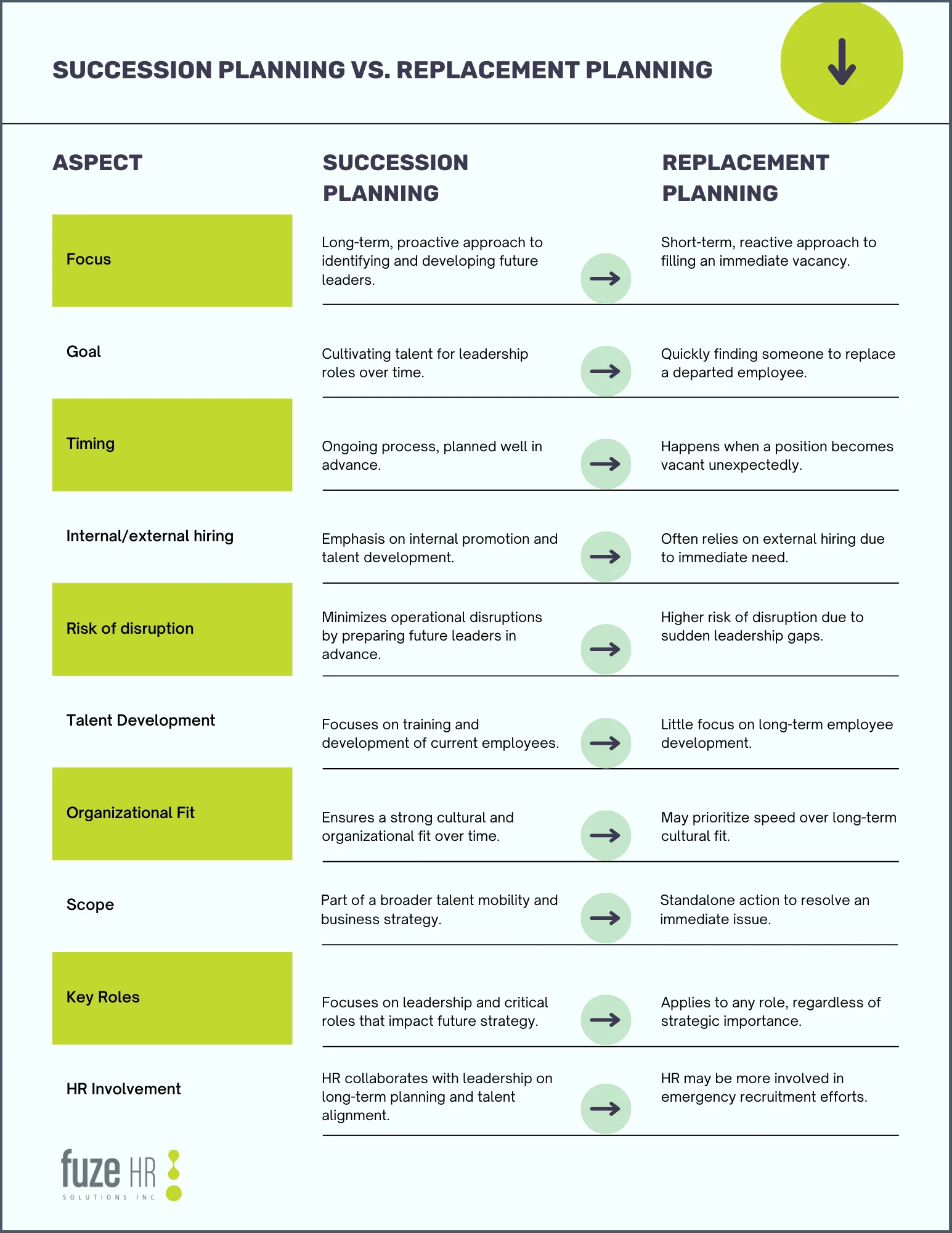In today’s business world, ensuring leadership continuity is essential for sustained success. Succession planning, often driven by HR departments, helps companies identify and develop future leaders within their organizations. But what exactly is succession planning, and why is it so crucial to a company’s long-term strategy? In this article, we’ll explore the importance of succession planning, the role HR plays, and why it’s a necessity for companies in industries such as engineering and skilled trades, especially as 2025 approaches.
Why Is Succession Planning Important?
Succession planning is a proactive process of identifying and developing potential candidates to fill key roles within an organization. It helps minimize disruptions when leadership or essential staff retire or leave the company. By planning ahead, businesses can ensure smoother transitions, maintain operational stability, and mitigate the risks of losing institutional knowledge. Succession planning goes beyond mere replacements—it’s about talent cultivation and ensuring the long-term health of a business.
Succession Planning vs. Replacement Hiring
It’s easy to confuse succession planning with replacement hiring, but the two serve different purposes. Replacement hiring is reactive; it occurs after an employee leaves, creating an immediate need to fill the position. On the other hand, succession planning is a long-term, forward-looking strategy that identifies and grooms employees over time to take on leadership roles. Rather than scrambling to find a replacement, companies with a succession plan can seamlessly transition roles with minimal disruption, as they have prepared the next generation of leaders well in advance.

Succession Planning as Part of Talent Mobility
Succession planning is intrinsically linked to talent mobility. As organizations grow, they need to ensure their talent can move up or across departments. By identifying internal talent and preparing them for leadership roles, companies foster internal mobility, promoting from within whenever possible. This enhances employee satisfaction, fosters loyalty, and reduces turnover rates.
However, when there is no internal fit, recruitment agencies like Fuze HR can play a pivotal role in finding external candidates who align with the company’s long-term goals and culture. By collaborating with HR, recruitment agencies help bridge the gap between internal talent and external hires, ensuring that businesses continue to thrive with the right leaders in place.
Which Companies Benefit from Succession Planning?
Succession planning isn’t limited to large corporations. Small to medium-sized businesses also stand to gain significantly from a well-thought-out succession plan. Industries with highly specialized roles, such as engineering and skilled trades, benefit particularly. As we approach 2025, it’s becoming increasingly important for companies in these sectors to address succession planning. For example, in engineering, many experienced professionals are approaching retirement age, while the inflow of new graduates isn’t sufficient to replace them.
How Fuze HR Can Support Your Succession Planning
At Fuze HR, we understand that effective succession planning requires more than just filling a vacancy—it’s about finding the right fit for both the company’s culture and long-term strategy. Since 2006, we’ve partnered with clients to understand their business goals and create tailored succession plans that focus on future growth and sustainability.
Each of our divisions is led by recruitment experts who have built strong relationships with industry leaders and top talent. This network allows us to identify high-quality candidates who are a perfect match for your company, ensuring that your succession plan is both efficient and effective. Our goal is not only to find the first available candidate but to invest in finding long-term solutions for your business.
Industries That Should Prioritize Succession Planning in 2025
In 2025, businesses in sectors like engineering, skilled trades, and manufacturing should prioritize succession planning. These industries face unique challenges as they grapple with an aging workforce and a shortage of new talent entering the field. By starting the succession planning process now, companies can avoid leadership gaps, reduce operational disruptions, and ensure a steady flow of talent into key roles.
Conclusion
Succession planning is a vital tool for any company looking to secure its future. With the help of HR departments and expert recruitment agencies like Fuze HR, businesses can create robust plans that develop internal talent and, when needed, bring in external candidates who are the right fit. In today’s competitive landscape, the companies that invest in this planning today will be the ones that thrive tomorrow.





